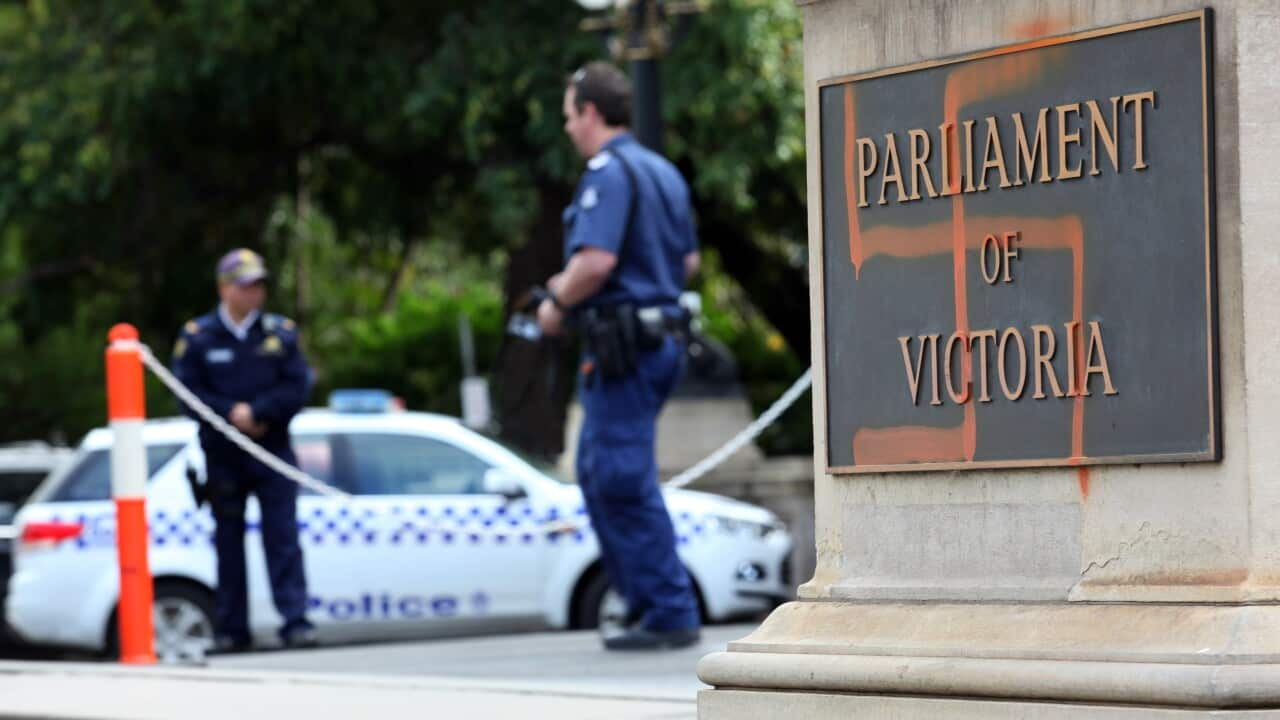Russian President Vladimir Putin has apologised for remarks made by his Foreign Minister Sergei Lavrov, who claimed Adolf Hitler may have had "Jewish blood", Israel says.
Mr Lavrov's comments sparked outrage in Israel, which has sought to maintain ties with Russia following the invasion of Ukraine.
"The Prime Minister accepted President Putin's apology for Lavrov's remarks and thanked him for clarifying his attitude towards the Jewish people and the memory of the Holocaust," the office of Israel's Prime Minister Naftali Bennett said in a statement on Thursday.
A Kremlin summary of the Bennett-Putin call, which came as Israel marked 74 years since the creation of the Jewish state, made no mention of an apology from Mr Putin.
It did, however, note that the leaders discussed the "historic memory" of the holocaust.
In an interview with an Italian media outlet released on Sunday, Mr Lavrov claimed that Ukrainian President Volodymyr Zelenskyy "puts forward an argument of what kind of Nazism can they have if he himself is Jewish".
Mr Lavrov, according to a transcript posted on the Russian foreign ministry website, then added: "I could be wrong, but Hitler also had Jewish blood".
Israel's Foreign Minister Yair Lapid labelled the comments "an unforgivable and outrageous statement as well as a terrible historical error."
Mr Bennett denounced the comments as "lies" that he said effectively "accuse the Jews themselves of the most awful crimes in history", perpetrated against themselves.
Russia's ambassador to Israel was summoned to "clarify" the remarks.
The Russian Foreign Ministry initially doubled down on the remarks. In a statement on Tuesday it called Mr Lapid's criticism "anti-historical," and accused Israel of supporting neo-Nazi's in Ukraine.
On Thursday, following a call with Lapid, Ukraine's Foreign Minister Dymtro Kuleba tweeted that "antisemitism has a long track record among Russian elites," and called on Mr Lavrov to publicly apologise.
Israel has sought to tread a delicate line since Russia invaded Ukraine in February, with Mr Bennett stressing Israel's close ties to both Moscow and Kyiv.
Mr Bennett has in particular sought to preserve Russian cooperation with Israeli strikes in Syria, where Russian forces are on the ground.
Israel has so far refused Ukraine's requests for military support, instead suppling bulletproof vests and helmets for medical workers, as well as an Israeli field hospital.
The reticence has frustrated Kyiv. In a harsh address to the Israeli parliament in March, Mr Zelenskyy called on Israel to step up its military aid, and provide Ukraine with Israel's Iron Dome missile defence system, which he dubbed "the best in the world."
Mr Bennett has attempted to mediate in the conflict and is among a handful of world leaders to meet with Mr Putin since the invasion, travelling to Moscow in early March.
Last month, Israel's Immigration and Absorption Ministry said more than 6,000 Russian Jews had emigrated to Israel since the invasion.


